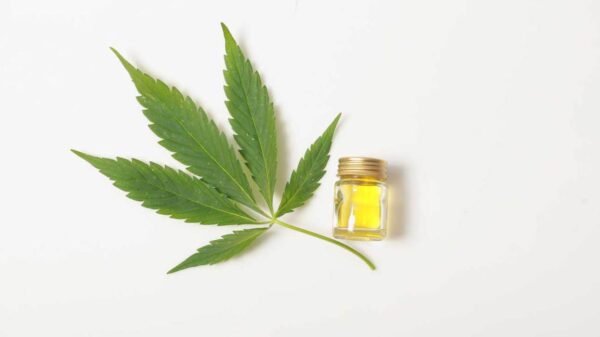What Makes CBD Treatments So Special

CBD Treatments
The receptors are primarily activated by endocannabinoids and phytocannabinoids, their behavior is often similar, but may and may differ significantly as they both have non-overlapping properties, and for this reason one cannot readily compare their effect.
The endocannabinoids are a family of bioactive fatty acids produced in the body as needed to modulate physiological processes, primarily by activating the cannabinoid receptors CB1 and CB2. The endocannabinoid family consists of 2-arachidonoylglycerol (2-AG), virodhamine and N-arachidonoyldopamine (AEA).
The phytocannabinoids are a group of chemicals found in the cannabis plant that are capable of activating the same receptors as the endocannabinoids. Of the currently identified 120 phytocannabinoids, THC and CBD are the most interesting to us, as they are present in such high concentrations in the plant that they can easily be extracted for use.
Tetrahydrocannabinol (THC) is a psychoactive cannabinoid found in high concentrations in the plant cannabis indica. It is its psychoactive properties that have made THC known, but it is the non-psychoactive properties of THC that make it interesting for cancer sufferers. THC’s effect on the human body is similar to the endocannabinoids 2-AG and AEA-THC’s ability to bind to and activate both the CB1 and CB2 receptors, giving THC a number of beneficial effects:
THC has immunomodulatory properties
- THC promotes programmed cell death
- THC has pain relief effect
Cannabidiol (CBD) is a non-psychoactive phytocannabinoid found in high concentrations in plant cannabis sativa. Cannabidiol has little ability to bind to CB1 and CB2, but can indirectly activate the receptors by promoting the production of endocannabinoid 2-AG. CBD has and a number of beneficial CB receptor-independent effects:
- CBD promotes programmed cell death
- CBD inhibits inflammation by activating TRPC 1 (TRPC1 inhibits COX and LOX)
- CBD promotes ROS and empties the cancer cells for intracellular glutathione
- CBD inhibits the formation of new blood vessels to a tumor
- CBD inhibits MMP enzymes
Other interesting cannabinoids are: cannabinol (CBN), cannabichromene (CBC), cannabigerol (CBG), cannabigerovarin (CBGV) and tetrahydrocannabivarin (THCV)
Clinical considerations
Clinically, we see that it is possible to manipulate the influence of the receptor system on, among other things, mood, pain, stress, appetite, immune response and inflammation by adding cannabinoids from the cannabis plant, therefore, with the addition of cannabinoids, it is not uncommon to see good therapeutic effects on MS. rheumatism, parkinsons, migraines, pain, glaucoma, autism, anxiety, epilepsy and cancer.
In cancer it is not uncommon to see a dose-dependent response, similar to the one we see in this well-documented case report, Cannabis Extract Treatment for Terminal Acute Lymphoblastic Leukemia with a Philadelphia Chromosome Mutation.
The Organic CBD Oil UK should therefore be seen as particularly bioactive plant chemicals, and particularly potent medicine.
The CB1 and CB2 receptors are linked to several signaling pathways directly involved in cell survival, proliferation of cancer cells and programmed cell death, and the cannabinoids in cell and animal studies have shown efficacy in all of the characteristics of cancer development, making them particularly interesting to use as a cancer treatment.
Supplementation of THC and cannabionoids using cannabis oil is a treatment option that we see may reverse long-term cases of cancer. But cannabis oil has no known response predictors that can indicate how effective it will be for each cancer patient, so use will have to be based on the test and error method. But there is a lot of clinical practice that can show the way, and that can lay the foundation for good, well-considered decisions.






